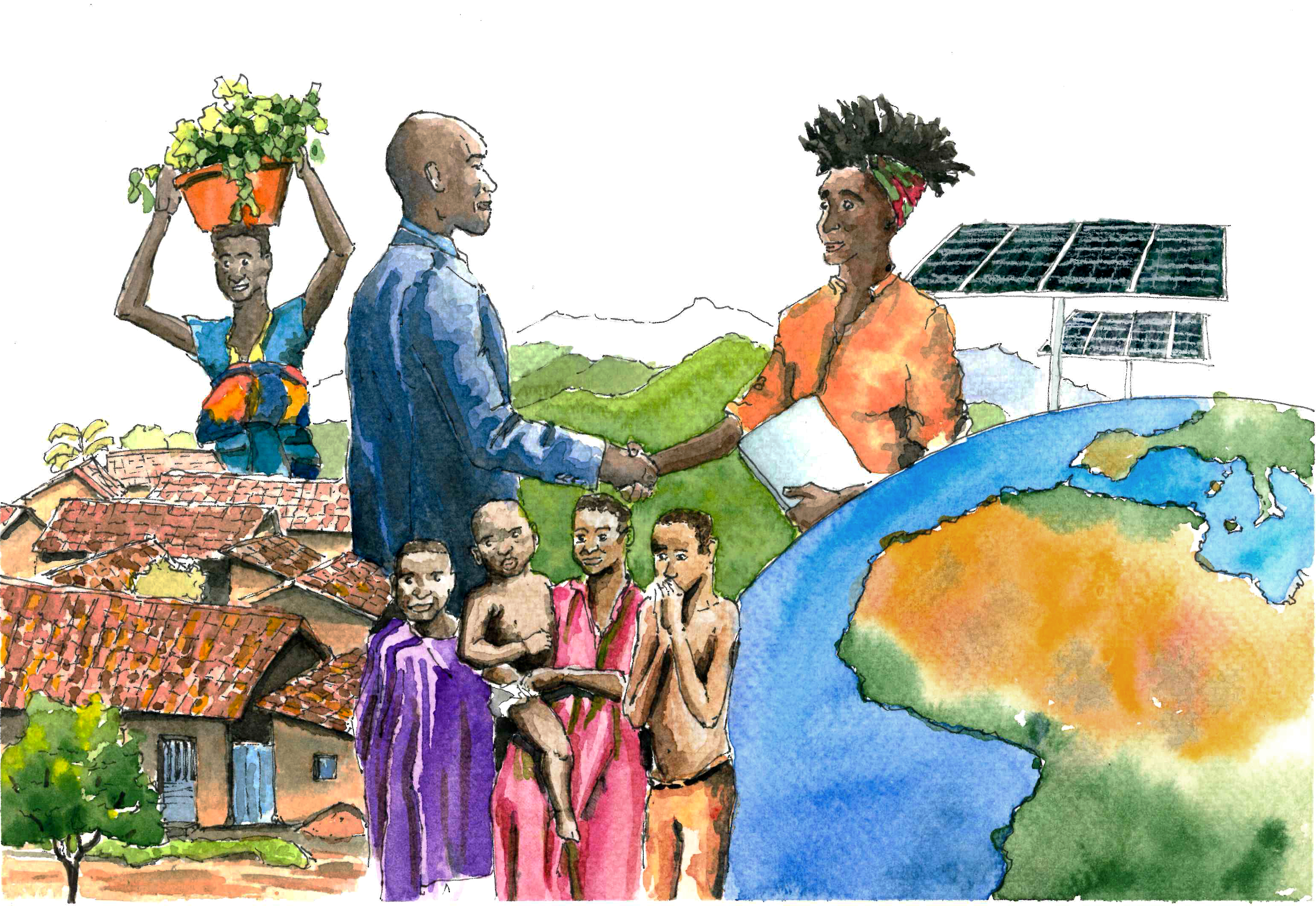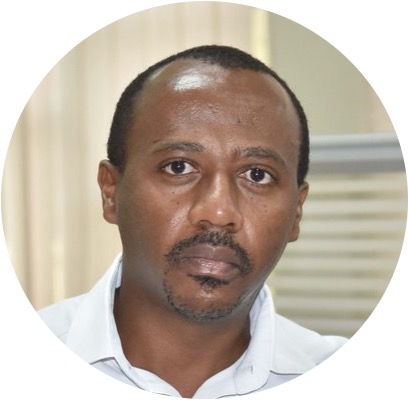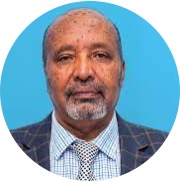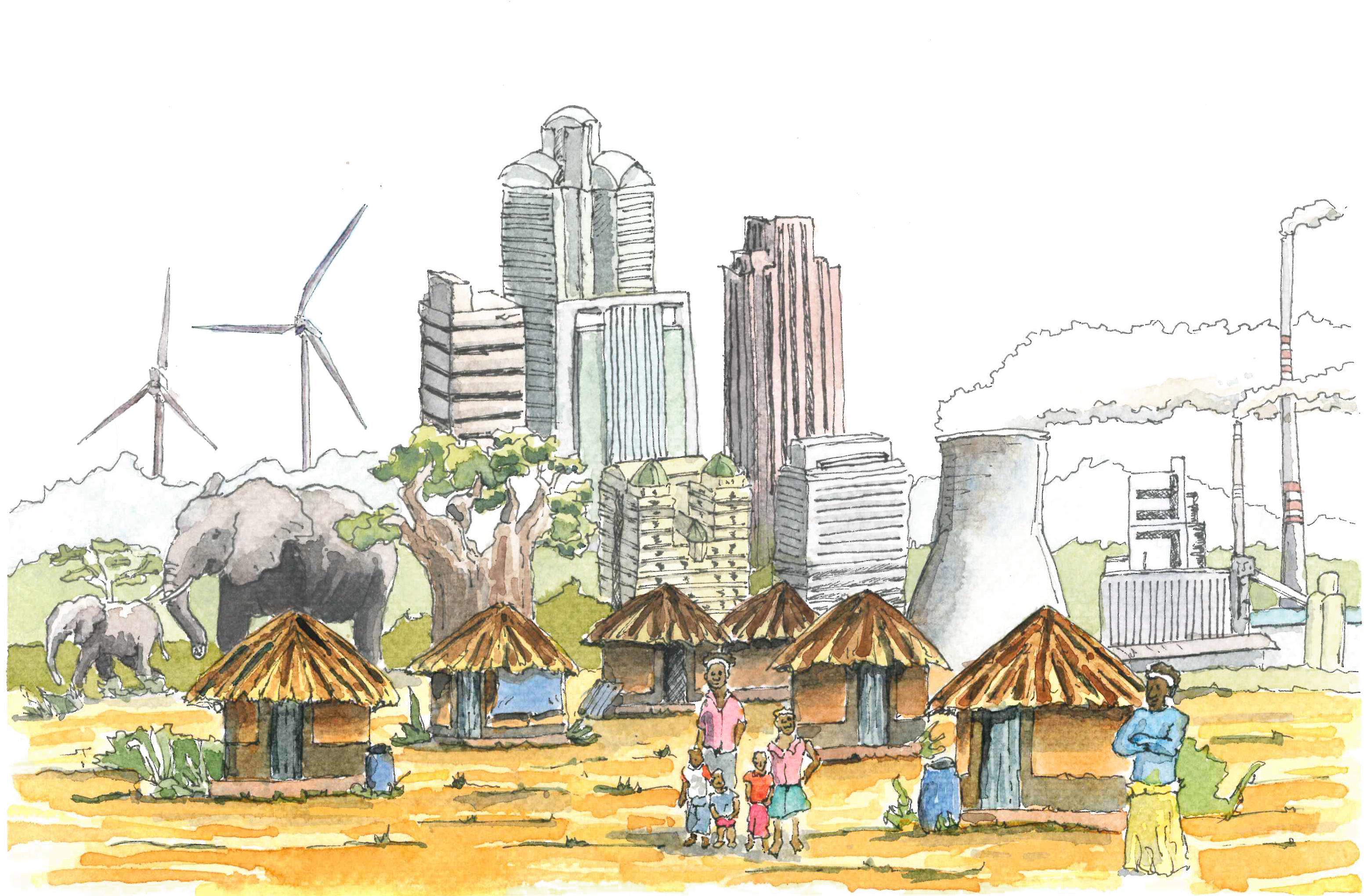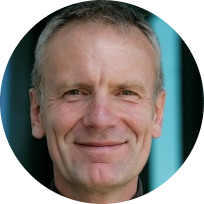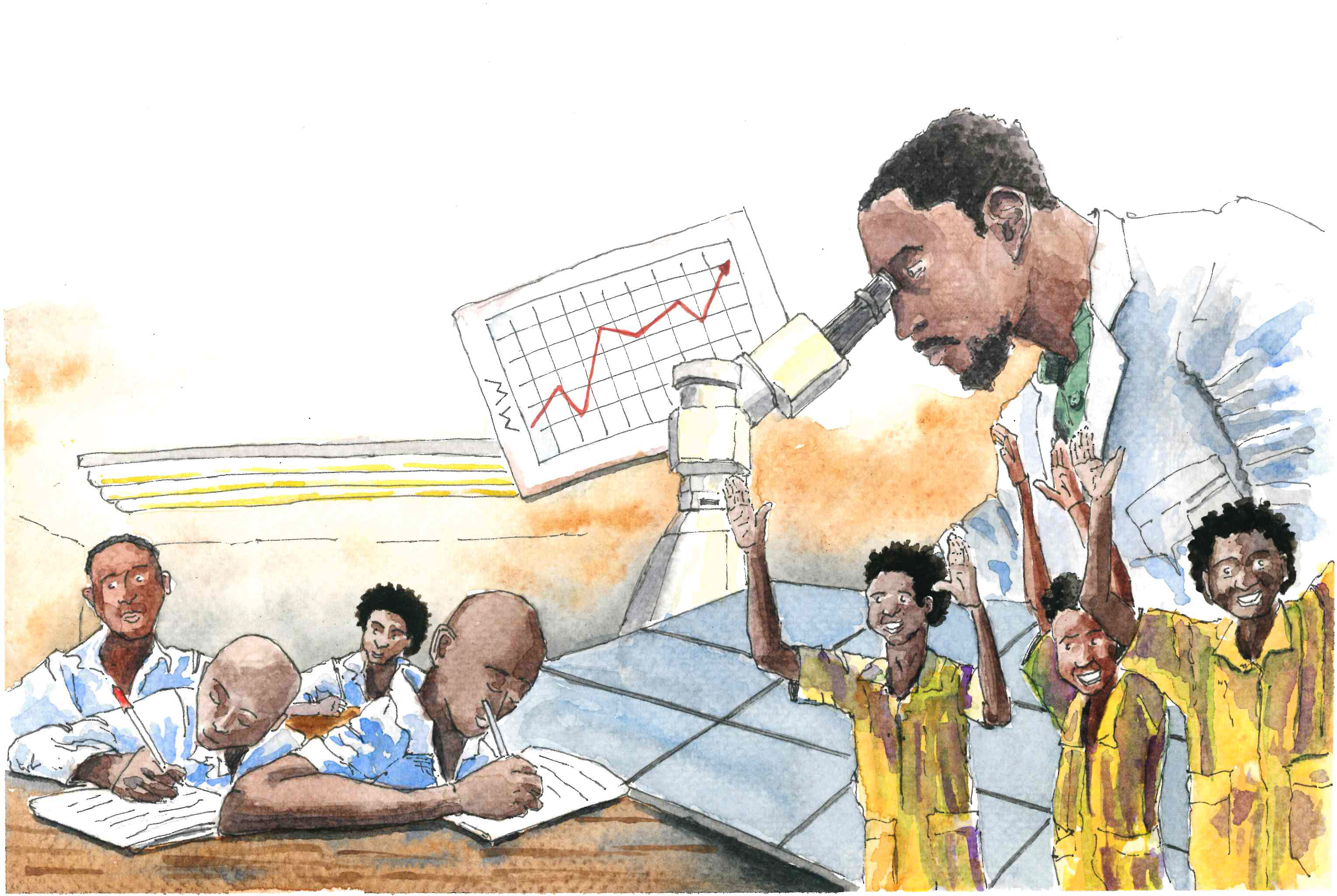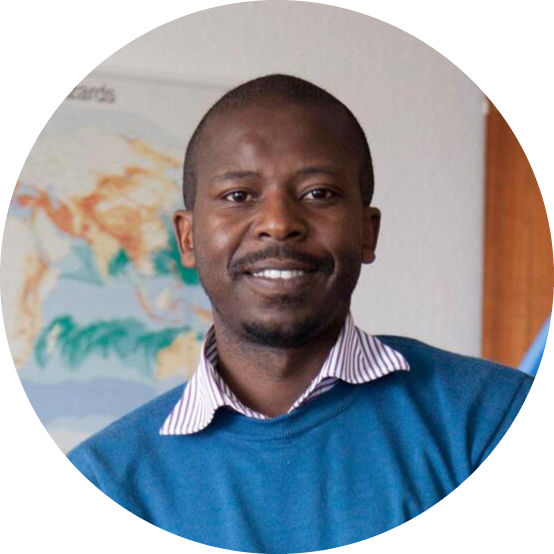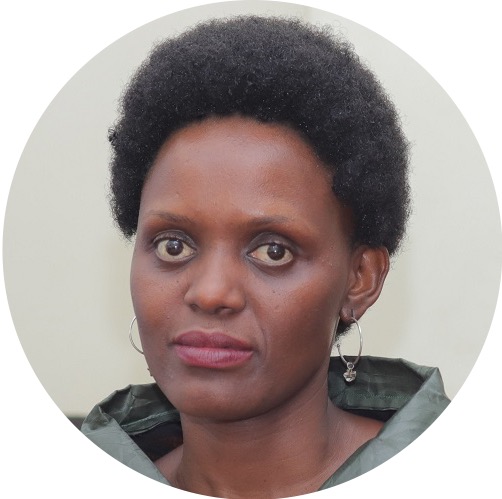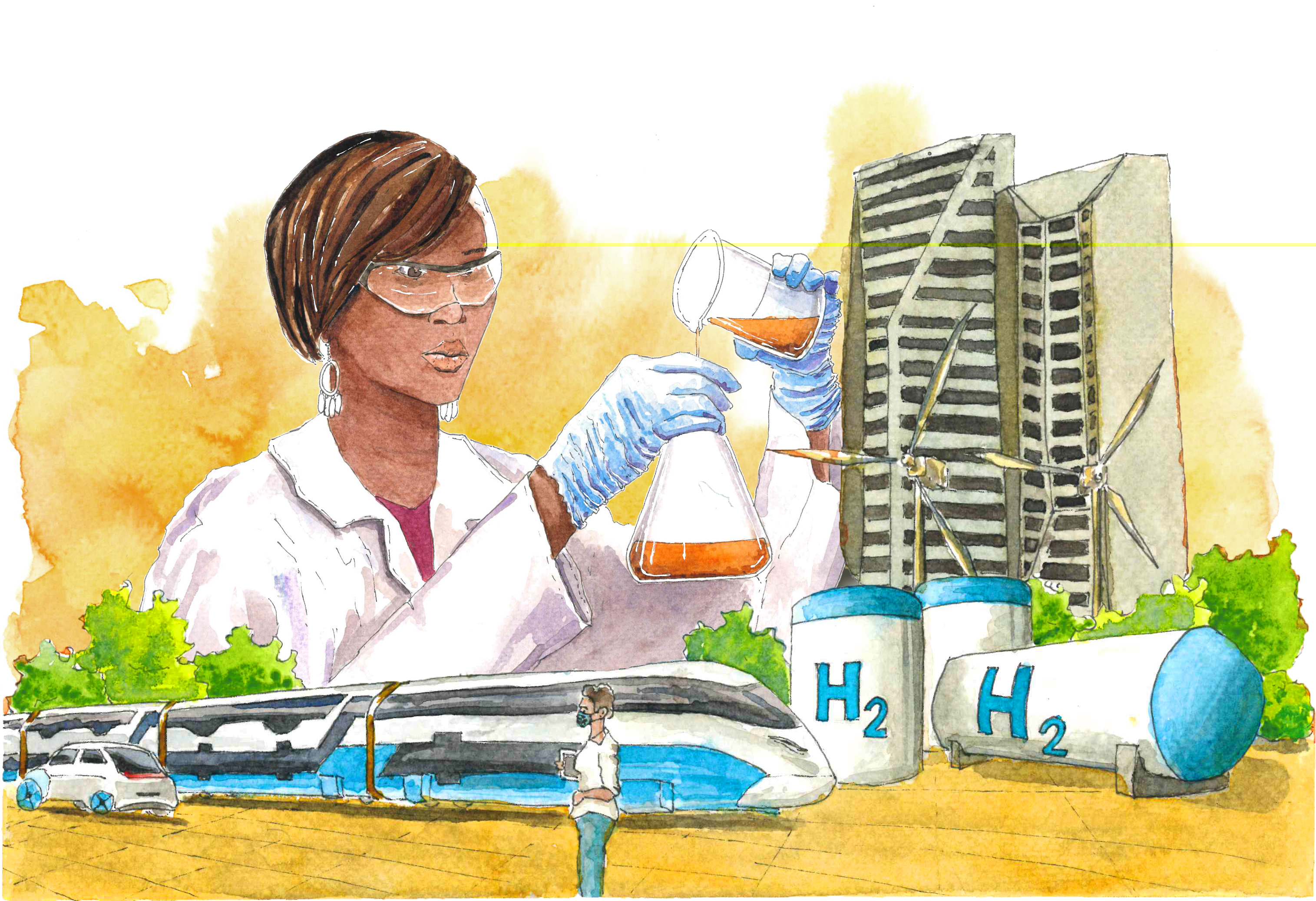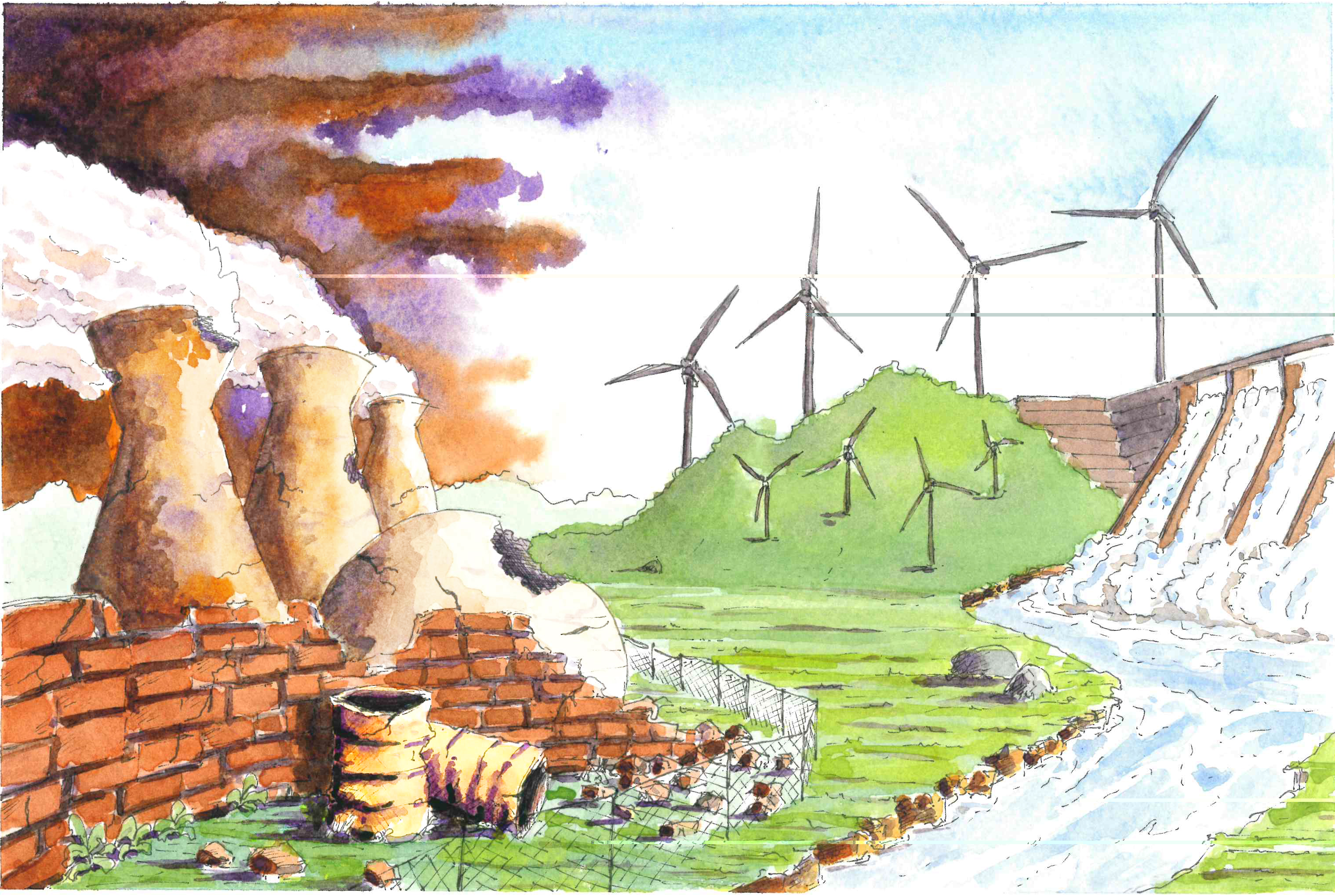Monday
Introduction to the stakeholders & key challenges
The Paris Agreement and Sustainable Development Goals have made climate policy history. A rapid transformation of energy systems in sub-Saharan Africa is high on the agenda. The limitation to a temperature increase below 2°C translates to an investment signal for renewable energies, which can be used to bridge the climate policy gap between North and South actors.
The transformational processes towards a green economy are often characterised by the growing interest of transnational companies and venture capitalists in opening up energy markets in sub-Saharan Africa. Countries in the Global South act as both local partners and resource areas for a green transformation, in which development policy and energy industry logic and concepts collide.
Partnerships and sustainable exchange between actors are crucial to ensuring fruitful collaborations with Africa. Long-term, sustainable, and innovative cooperation is essential for future strategic development work. An overview of the stakeholders, roles in partnerships, and achievements and challenges of transnational and international multidisciplinary projects will be explored.
Key questions:
- What are the main challenges related to the energy transition in Africa? How should the issues be prioritised in order for key stakeholders to take action?
- What are the main differences between countries in their pathways towards an energy transition? What is needed for transnational cooperation?
- Which stakeholders should play a role in the just energy transition of the continent? Should we only focus on an energy transition or instead consider a larger economic transition?
Tuesday
Renewable Energy Development in the Continent
Integration of renewable energies into the grid is now a significant part of the energy transition that is unfolding globally. This can be observed at different rates and scales in different countries, but the constant increase in demand and continuous drop in the prices of these technologies imply that renewable energies will be the most prevalent source of power in the future. Given the rapidity with which the share of renewable energy is growing today, along with the sharp decrease in the cost of renewable energy-based electricity generation, Africa is seeing more of a revolution than a transition.
Forecasts show that by 2050, solar photovoltaic (PV) power will represent over 50% of total electricity production in Africa. In the projections, renewable energies are—and will remain— affordable and reliable; they will be combined with flexible quick-start power generation resources such as thermal power plants to meet peaks in demand and compensate for intermittent supply. It is a must to introduce flexibility into power production. And without a long-term vision, meaningful cooperation, and transversal and transnational planning, the energy revolution will not take place.
Africa's energy resources are more than sufficient to meet its demands, but they are unevenly distributed and underdeveloped. Currently, only 4% of the population’s energy demand is being met, and the provision of affordable energy is therefore critical to the development of this region.The lack of infrastructure and increasing poverty in rural areas hinders sustainable development and forces people to migrate to urban areas for income generation opportunities. Further exacerbating these problems are issues like the scarcity of resources such as water supply and the impact of climate change on food security. This global context increases the complexity of providing reliable and affordable energy to everyone in both urban and rural areas.
Furthermore, the continent is endowed with significant hydropower potential that can be harnessed. However, only a small fraction has been exploited. Major technical, financial, and environmental challenges need to be overcome in order to develop this resource base.
Key questions:
- What is required at a national and continental level to facilitate large-scale deployment of renewable energy technology?
- What are the main challenges key stakeholders are facing in catalyzing a renewable energy revolution? How can these issues be addressed?
- What existing partnerships are contributing to renewable energy development in Africa? What further resources do these partnerships need, and what other types of partnerships are required?
- Which stakeholders should be involved in hydropower development? How can key stakeholders work together to exploit hydropower potential?
Wednesday
Research & Finance
It is possible to ensure sustainable and universal access to electricity in Africa by 2030. This requires better coordination of national and regional efforts, as well as taking into account the political and economic framework conditions of the countries concerned. Above all, however, more investment from both the state and private sector is needed. The financial measures to combat the economic consequences of the Coronavirus Disease 2019 (COVID-19) pandemic are particularly suitable for this purpose and can drive forward the energy transition in Africa, in addition to general economic development.
Reducing risks and promoting private sector investment are key to achieving sustainable energy for all; new partnerships should be established in this field, and a broad range of development policy instruments, applied. Interventions will provide insights into the catalysing role of multi-stakeholder investments and partnerships, as well as solutions and interventions that have been established in the energy sector due to the COVID-19 pandemic.
In particular, the importance of scientific research to navigate in a complex sector will be discussed. Researchers have contributed to the development of projects, policies and initiatives promoting and enhancing energy access and the skills to exploit the vast potential of exploiting digital solutions will be key for leapfrogging fossil fuel technologies to a more sustainable, climate-friendly power strategy aligned with the Paris Agreement and low-carbon growth.
Key questions:
- What national and regional efforts in the African renewable energy sector have been successful and why?
- What are the barriers to obtaining more investment from the state and private sector? How can these barriers be eliminated?
- How has the COVID-19 pandemic impacted the energy sector in Africa? Where are the new investment opportunities?
- How can the private sector partner with the state to facilitate an energy transition? Any examples of how this has already been done?
- How has research collaborations between global cooperations have improved energy access in Africa?
- What are main research gaps to address for future researchers in Germany and in Sub-saharan Africa?
Thursday
Hydrogen & electric mobility
Hydrogen will play a central role in future energy supply systems and will be crucial to achieving the ambitious climate targets in Europe and around the world. Due to this important role, hydrogen is seen as a source of hope for the energy transition. However, to produce hydrogen in a climate-neutral way, a lot of land, sun, and wind are needed. Germany's interest in importing hydrogen from Africa is driving the development of partnerships that should benefit both parties. If governments and private players cooperate globally, all sides can benefit from the energy transition.
Population growth in Africa is considered one of the main challenges to consider in the energy transition. Megacities across the continent will continue to grow, meaning there will also be an increase in smog, noise pollution, and traffic congestion. Lagos and other cities are already struggling with such issues. Therefore, some governments are looking to electric mobility in Africa as a solution, with Rwanda being a prominent example.
Key questions:
- Is it possible to have Africa at the center of a future with green hydrogen, wherein the continent provides hydrogen to the rest of the world? What is needed to make this a reality?
- Can water and the other key resources required to produce hydrogen be used in such large quantities without harming the environment and local residents?
- Is the transition to electric mobility compatible with the transition to green energy? How can the two be ensured simultaneously?
- What are the main challenges in rolling out sustainable electric mobility? How can partnerships in the transport and energy sectors be leveraged to address these challenges?
Friday
Advisory & Experts - Leading a Just Energy Transition
The "energy transition" is a term often used to refer to the gradual abandonment of certain energies (fossil fuels, and sometimes nuclear energy) in conjunction with the development of other (renewable) energies, along with energy efficiency initiatives. Developed in Germany in the 1980s, the energy transition concept is part of a larger context of greater consideration for environmental and climate-related issues.
In addition to this environmental aspect, the energy transition integrates economic and social dimensions and tends globally towards a more "sustainable" energy system in the sense of "sustainable development" (a mode of development that meets the needs of the present without compromising the ability of future generations to meet their own needs).
Key questions:
- What is the role of advisory and experts in the energy transition?
- What resources are needed to facilitate and expand the work of advisory and experts in the energy sector?
- How can public-private partnerships contribute to the inclusion of experts in renewable energy initiatives? What are potential areas where North-South partnerships could be helpful?
